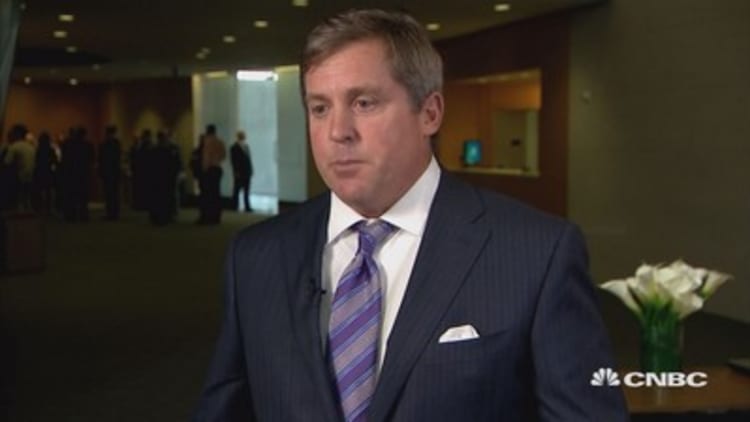
Remember the sliced and diced mortgage-backed bonds that brought down the U.S. economy?
They're back, but their makers say they are nothing like the former bonds, not even close.
The mortgages backed by these new bonds exist outside the strict guidelines of government-backed securitizations, and the borrowers do have some dings on their credit reports, but these loans are fully underwritten, require significant down payments and come fully documented.
Angel Oak Capital Advisors announced its first rated securitization of nonagency residential mortgages this week; the $148 million securitization was rated AAA by the Fitch and DBRS ratings agencies. The deal is backed by loans that fall outside the guidelines for government securitization, so-called nonqualified mortgages. Borrowers may have gone through foreclosure in the past or have some other red flag on their credit report.
The nonqualified mortgages market is slowly coming back to life after shrinking to next to nothing since the recession.
"We're verifying, and in the regulatory environment you have to. Investors who buy these loans demand it," said Michael Fierman, co-founder and CEO of Angel Oak Capital Advisors. "So yes, some of these borrowers have had some credit dings or other issues that take them out of the box, but they're not necessarily higher-risk borrowers, I would argue."
This is Angel Oak's third securitization since 2015, and all three are backed by loans originated through the firm's two affiliated mortgage lenders. A few others have gotten back into this market but mostly with older, subprime loans that have been bundled together. These are newer loans from one entity. That helped in selling the idea to investors.
"It started slow, as any new product does, and you're under a microscope and we do a lot of talking to investors and educating them on what's different and why you should be interested in this," Fierman said. He said the bonds have started to earn investors' trust because there have been few delinquencies in the three years they've been on the market. Investors are also doing more due diligence this time, he said.
Private label mortgage-backed securities doubled in dollar volume from 2003 to 2006 as home prices surged and pretty much anyone with a pulse could get a loan. At their peak in 2006, they accounted for almost 60 percent of the securitized mortgage market, with a dollar value of $1.2 trillion, according to Inside Mortgage Finance. When the market came crashing down, and the value of these bonds vanished, the government stepped in. Today, about 95 percent of the mortgage-bond market is government-backed. Investors have been leery to get back in, not just because they got burned once, but because low interest rates have not offered attractive yields.
"One of the things that killed the prime jumbo securitizations is lenders have been so competitive with doing portfolio loans," said Guy Cecala, CEO and publisher of Inside Mortgage Finance. "In a low interest rate environment there was no way to price the securities high enough to get any investor attention."
Rising rates will likely make these products more attractive, as will the performance of the loans over time. Caliber Home Loans is also originating mortgages to borrowers who are outside the credit box and has done five securitizations of nonprime loans.
"So these are fantastic borrowers that the mainstream lending has left behind that we are lending to, and we've found that the risk profile has been fantastic in the last few years," said Sanjiv Das, CEO of Caliber. "There is pretty solid institutional demand for this."
Since the recession, lending has been tight, with most bank and nonbank lenders courting only the high FICO borrower. Those with lower scores and lower down payments can use the government's FHA mortgage insurance program. For borrowers in between, with good credit histories overall but some kind of negative credit event, the mortgage market has been tough. They can get loans but only at much higher interest rates. This new private label market is designed to serve them.
"Compared to other loans, the subprime of the past, they're very high quality," said Cecala. "I think investors will eventually start buying them more. The yields are good."


